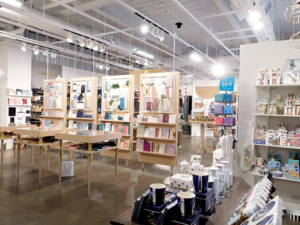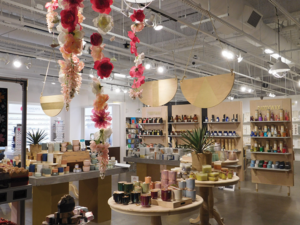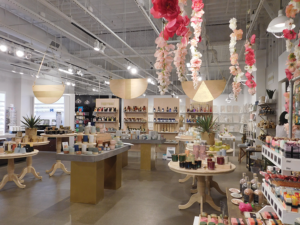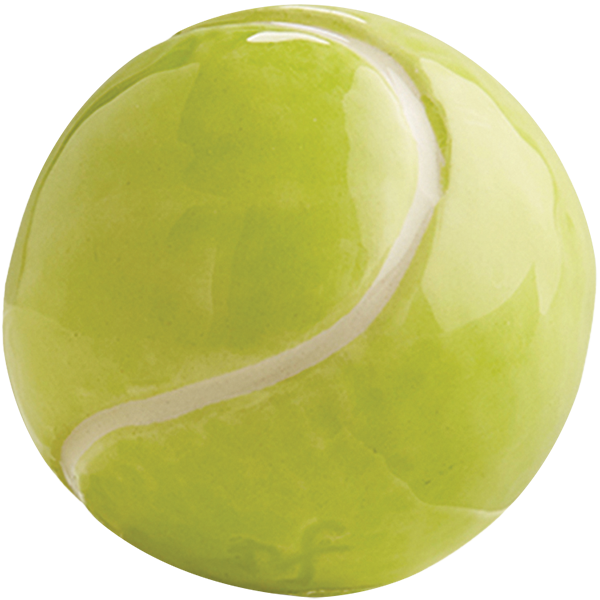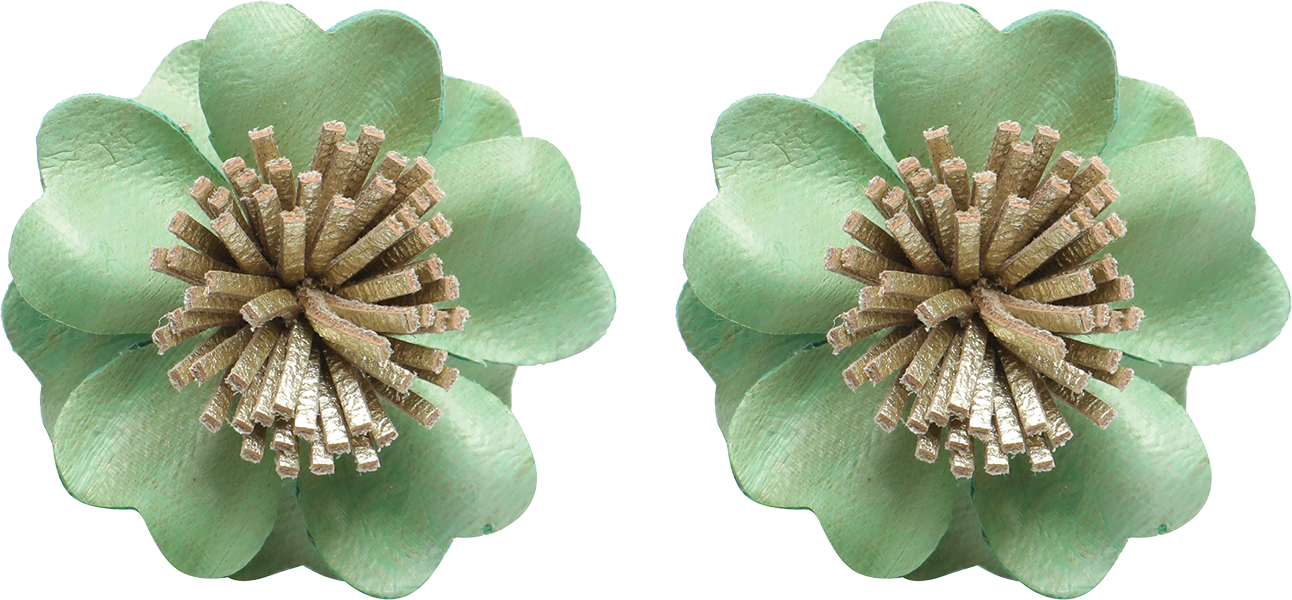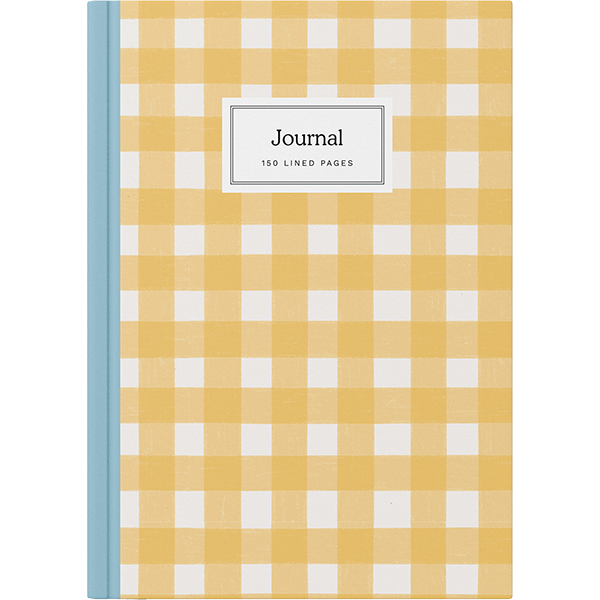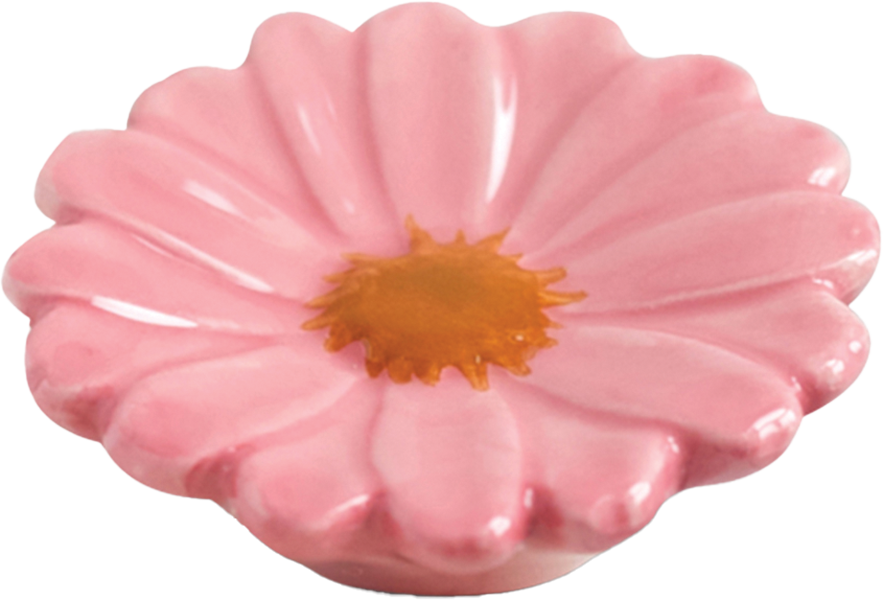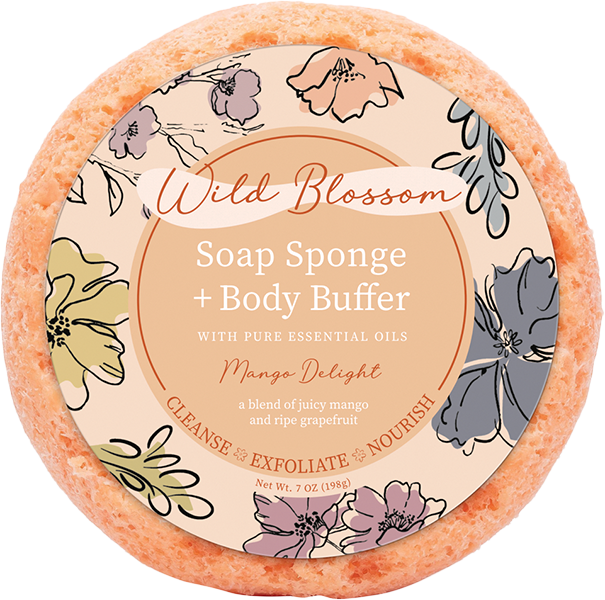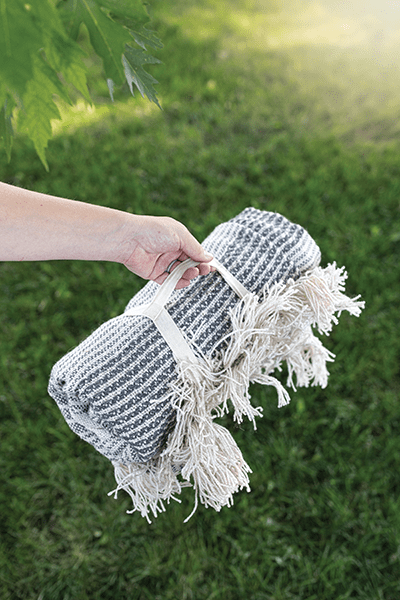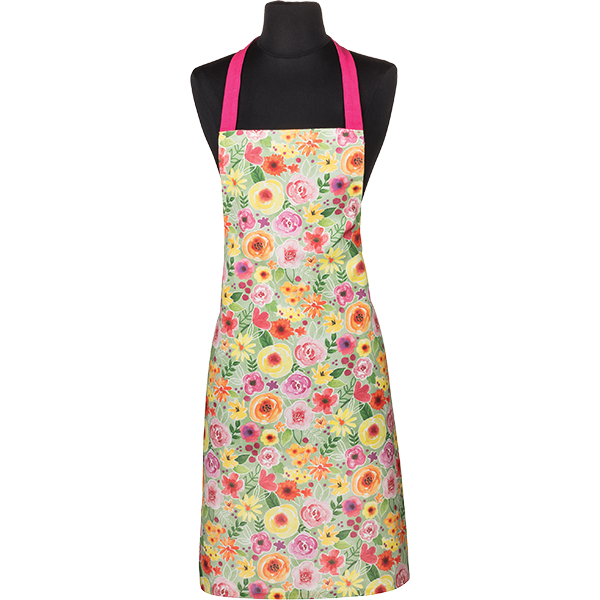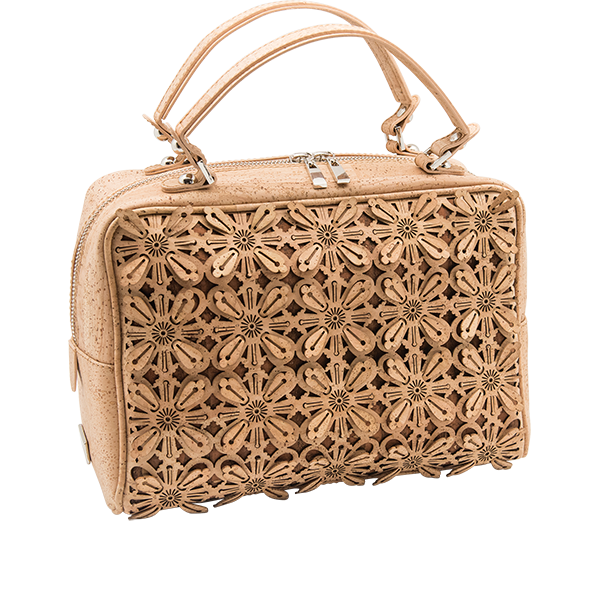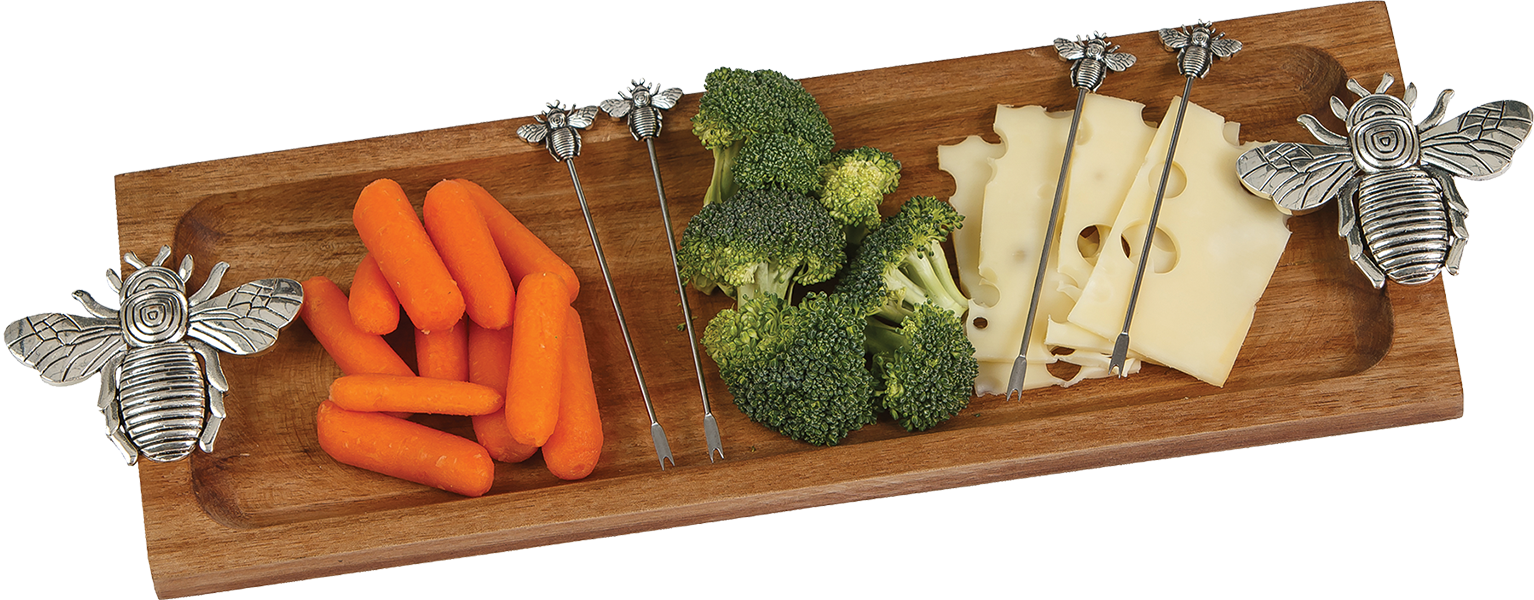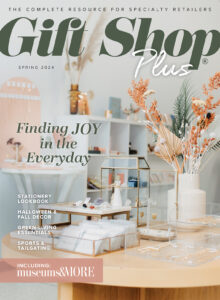Going Green
As “green” and recycling initiatives become more common across the art and gifting industries, a movement toward zero- and low-waste operations is taking center focus in showrooms and manufacturing facilities across the country — changing the way retailers experience and receive new products.
Matthew Katzenson is the chief executive officer of Fine Lines, an industry leader in gift, fashion and home décor for more than 30 years. With roughly 7,000 annual visitors to just their Los Angeles showroom alone, Katzenson said their new focus is on how the company can determine their global footprint, and what can be done in all of their showrooms to reduce the negative environmental impact.
“It’s a huge process that requires a tremendous amount of learning and understanding,” Katzenson said of their new zero-waste initiatives. “And we’re in the throws of that right now … but our commitment is to understanding the impact that we make, and our footprint of what we do and how we operate as a company.”
REDUCING SHOWROOM WASTE
According to Ocean Crusaders, a foundation focused on educating on the effects of non-recycled waste, there are now believed to be over 5.25 trillion pieces of debris floating in the ocean. In all three of Fine Lines’ showrooms, located in Los Angeles, Las Vegas and Seattle, Katzenson said the primary focus has been on being “aggressive” in cutting out some of these everyday waste items that humans have grown accustomed to.
First, Fine Lines has removed all plastic and Styrofoam cups from their showrooms — transitioning instead to coffee mugs and glass water bottles. Katzenson said that while it’s been a learning process, he believes the shift to mugs and bottles has been received in a largely positive light by visitors and vendors alike.
“There was a tremendous amount of waste in just those two places,” Katzenson said on the elimination of plastic and Styrofoam cups. “I feel that some people have enjoyed (drinking their coffee out of a mug) instead of Styrofoam … it allows them to enjoy their coffee and leave the cup, and we’ll clean it for reuse.”
Of the more than 7,000 annual guests, more than 60% generally pass through the Fine Lines showroom “food areas,” which serve meals, beverages and snacks — something that Katzenson noted has been one of the “more complicated” pieces of the transition toward zero-waste.
“There is a lot of volume that comes from paper plates, napkins, utensils … and we cannot recycle them because they have food waste,” Katzenson said.
To help combat the paper waste, Katzenson noted that Fine Lines has partnered with Meri Meri, a partyware and homeware company, to create post-waste paper plates that are decorative, made with nontoxic dye inks and compostable, developed in a “super eco-friendly” way.
“It’s costing us a little more money, but at the end of the day, being able to know that we can have our guests and vendors use products that are going to biodegrade is worth it,” Katzenson said.
As for the LA Mart itself, where Fine Lines’ Los Angeles showroom is located, senior vice president Frank Joens commends the company on their initiatives, stating that the changes fall directly in line with the LA Mart’s recycling programs.
“The LA Mart, for decades, has long been a site of recycling and a completely non-Styrofoam building,” Joens said. “Buyers in Los Angeles, they’re super eco-conscious … so people definitely notice (the recycling initiatives) in our showrooms and are very complimentary.”
REDUCING MANUFACTURING WASTE
In 2018, Dennis East International (DEI), a wholesale home décor and gift manufacturer of more than 20 years, announced their initiatives aimed at improving the global footprint of both their warehouses as well as their corporate offices.
The “Go Green” initiative, as it was termed, was aimed at several specific areas — the first being to go completely paperless with invoices, order confirmations and statements. The paperless initiative is something that Lisa Medlin, vice president of DEI, said has seen an overwhelmingly positive reaction from customers.
“We’ve had about an 85-to-90% positive reaction to it,” Medlin said of the switch to paperless invoices and statements. “Of course, there are still customers that want that hard copy invoice for their receiving department to check things in, and we will still send those out from time to time.”
Then, Medlin said, the focus shifted toward the manufacturing side — like trying to eliminate as much plastic as possible from their packaging and shipping processes.
“We sell a lot of glassware and ceramic, so we’re looking to eliminate gift boxes made of hard acetate plastics,” Medlin said. “Our goal for 2019 was to eliminate as much plastic as possible.”
One of the ways the shift away from plastic is being made possible comes from turning toward cardboard — with DEI developing “designed” cardboard gift boxes with window cutouts that feature bright colors, logos and other various designs. According to Medlin, however, one of the biggest challenges to overcome with cardboard will admittedly be the shipping process.
“…our commitment is to understanding the impact that we make, and our footprint of what we do and how we operate as a company.”
– Matt Katzenson, CEO, Fine Lines
“Some of the challenges with (the shift to cardboard) are making sure we can maintain our low damage rate,” Medlin said. “We have a below industry average for damages, so we obviously want to make sure we keep that damage rate down by making sure things are still packaged well enough to move through (the shipping carrier’s) hands.”
Finally, Medlin said DEI has worked with Mass Save, a Massachusetts-based energy assessment company, to re-lamp all of their offices and their warehouse. By utilizing photocell sensors in parking lots, as well as warehouse aisles, DEI has been able to reduce energy usage by having motion-sensored lighting throughout their operation.
FUTURE STEPS
As these green initiatives continue to become more important to both companies’ core values, both Fine Lines and DEI admit that they’re far from accomplishing their final goals.
For Fine Lines, Katzenson said, it’s about continuing to learn more about what can be done, and educating employees on the processes to help the company adapt as a whole.
On the manufacturing side, Medlin said DEI is beginning to look at the type of product that they sell and how it aligns with their “Go Green” initiatives.
“We’re still continuing to look to add in recycled products into our environment. It’s trending, and we’re constantly looking for the next best trend out there for product,” Medlin said.

